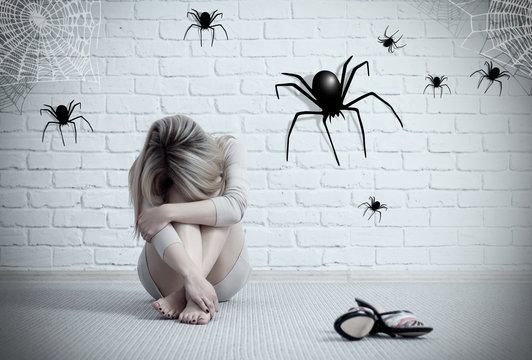What is insomnia?
Insomnia is a common type of sleep disturbance that involves difficulty with falling asleep, frequent awakenings throughout the night, or waking up early in the morning with the inability to fall back to sleep.
What are the symptoms of insomnia?
Insomnia is characterized by a variety of symptoms which may include some or all of the following:
- Difficulties falling asleep
- Frequent awakenings
- Unwanted early-morning awakening with the inability to return to sleep
- Worries about or discontent with one’s sleep
- Irritability
- Fatigue
- Impaired attention or memory
- Decreased motivation
- Increased accidents or mistakes
When is it time to get help?
It is common to occasionally experience sleep difficulties, such as trouble falling or staying asleep. However, when the sleep disturbance interferes with everyday functioning (e.g., work, school, relationships) and causes increased disruptions and impairments in your daily life activities, it may be time to seek professional help. The sleep disturbance is characterized as insomnia if you have been experiencing symptoms of insomnia for more than 3 months, for at least 3 nights per week. People who experience insomnia also may experience other psychological disorders (e.g., depression, anxiety), which can also be addressed with professional support.
How can CBT help treat insomnia?
Cognitive Behavioural Therapy (CBT) is an evidence-based practice that is widely used in the treatment of sleep disorders. CBT for insomnia, known as CBT-I, is recommended as the first-line treatment. CBT-I helps to change behaviours (i.e., sleep habits and schedules) and thoughts (i.e., worries about sleeplessness and its consequences) that contribute to and perpetuate disturbances with sleep.
Key components of CBT for insomnia include:
- Psychoeducation – education on sleep and the circadian system
- Sleep diaries – daily tracking to look at sleep habits and schedules (i.e., sleep-wake patterns and disturbances)
- CognitiveComponents
- Cognitive restructuring – identifying and evaluating the validity of unhelpful worries and beliefs related to sleep, as well as reappraising expectations
- Behavioural experiments – to test unhelpful thoughts and show the effects of monitoring (e.g., the clock, fatigue, sounds) and using safety behaviours (e.g., sound machines)
- BehaviouralComponents
- Sleep restriction – reducing time spent in bed without sleeping
- Stimulus control – unlearning the association of the bed with the inability to sleep
- Sleep hygiene – information about sleep and sleep-incompatible behaviours
- Regularity – wind-down and wake-up routines
How can the team at Oakville Centre for Cognitive Therapy help?
At Oakville Centre for Cognitive Therapy (OCCT), we have a number of highly skilled and experienced clinicians who can provide assistance to those who may be suffering from sleep difficulties, including insomnia. Our psychologists complete an initial assessment of the presenting difficulties and develop an evidence-based treatment plan to help the client achieve their goals. To arrange an appointment please call us at 905-338-1397 or email us via the Contact Us page of our website.
*Information on this page is obtained from:
American Psychiatric Association. (2022). Diagnostic and statistical manual of mental disorders (5th ed., text rev.).
Kaplan, K. A., & Harvey, A. G. (2021). Treatment of sleep disturbance. In D. H. Barlow (Ed.), Clinical handbook of psychological disorders: A step-by-step treatment manual (6th ed., pp. 638–669). The Guilford Press.



